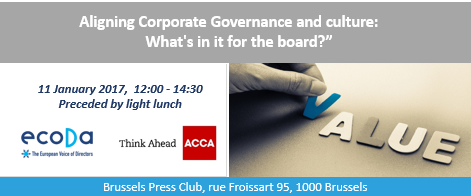FEAD is bringing together experts, policymakers, and industry leaders to explore how the EU institutions can enhance Member States’ performance in achieving circular economy targ
Combining ESIF and EFSI or not? Choices for EU Co-Funding Infrastructure and SME Support Operations
Date
Address
Section
Event Location
Event Description
This seminar-workshop will describe how Structural Funds might be used alongside the EFSI instrument, the European Fund for Strategic Investment (a part of the so-called “Juncker Plan”). EFSI, working with regular EIB loans, exists to lever private funding into projects with a higher degree of risk. Should you be using it with Structural and Cohesion Funds?
ESI Funds (particularly Structural and Cohesion Funds) are playing a key role in co-funding large projects – vital infrastructure, productive investment in companies. EFSI is a relatively new instrument designed to complement the role of ESIF. EFSI has been so successful that it has been extended and prolonged as EFSI 2. This course will explain how best to draw from both ESIF and EFSI.
A senior EIB official will describe how EFSI works and how the funding can be accessed – how it is structured and managed, and in what circumstances can it be used. Examples from around the EU will be presented. The European Commission will detail how ESI Funds may be combined with EFSI. We will also examine how ESI Funds are used in the implementation of major projects, whether for infrastructure or for investments in companies. The specific rules for major projects and other large projects will be outlined and there will be a detailed description of the standard tests required in order to proceed with major projects.
How will it help you?
Participants will leave with a clear picture of when and where EFSI might be used, how to access the funding, and how to plan it alongside ESI Funds. They will understand the procedures in place for both instruments.
Participants will also understand how to proceed with securing EU co-finance for major projects and be familiar with the required appraisal steps, including the financial analysis, the economic analysis and the risk and sensitivity analyses. Workshops and exercises will used in order to help fix ideas and technical procedures. There will be ample opportunity for an exchange of experiences from different Member States. It will draw together experience of a range of sectors and of the European institutions.
Who will benefit most?
The workshop will be of particular interest to those considering or planning to use ESI Funds in conjunction with EFSI, in order to implement major projects or other large projects. These include policy makers, public officials from Managing Authorities and other departments, private sector service providers, funders and professional advisers in EU Member States, candidate countries and beyond. It should also be of interest to academics and to officials in European organisations.
Related Events
The new funding period 2021-2027 is now underway, Cohesion Policy funds have been programmed in all Member States through Partnership Agreements, and most are already starting the implementation.
SAVE-THE-DATE
Anti-Money Laundering in the Digital Era:
Upcoming on April 3: CESI@noon “The impacts of different tax leaks and state aid cases on EU policy”
Wednesday April 3 will see the next CESI@noon, this time on 'Tax evasions and state aid – A change of paradigm: The impacts of different tax leaks and state aid cases on EU policy'.
Beside impacting nearly all other aspects of everyday’s life, new technologies are also changing the financial industry and the way consumers and firms access financial services.
30 January 2018, 14.00pm-18.00h - followed by a cocktail reception
Residence Palace, Brussels
With uncertainty surrounding the negotiations on the UK’s exit from the EU, financial services firms in London, across Europe and all over the world still have no clear answers as to what the situation will be post-2019.

“Jobs of tomorrow: what educationals skills do we need?”
INVITATION
Following the European Commission's proposal of October 2016 to relaunch the Common Consolidated Corporate Tax Base (CCCTB), this ZEW Lunch Debate will focus on the design and implications of the new rules.

“Aligning Corporate Governance and culture: What’s in it for the board?”
Pages
Events of the week
Jobs
EURACTIV News
- Hard right’s Simion in with a chance as Romanians vote for president
- Developing nations blast $300 billion COP29 climate deal as insufficient
- Warsaw Mayor runs for Polish president as ruling party’s candidate
- COP29 braces for new deal after poorer nations reject climate offer
- Putin says Russia will keep testing new missile in combat
















